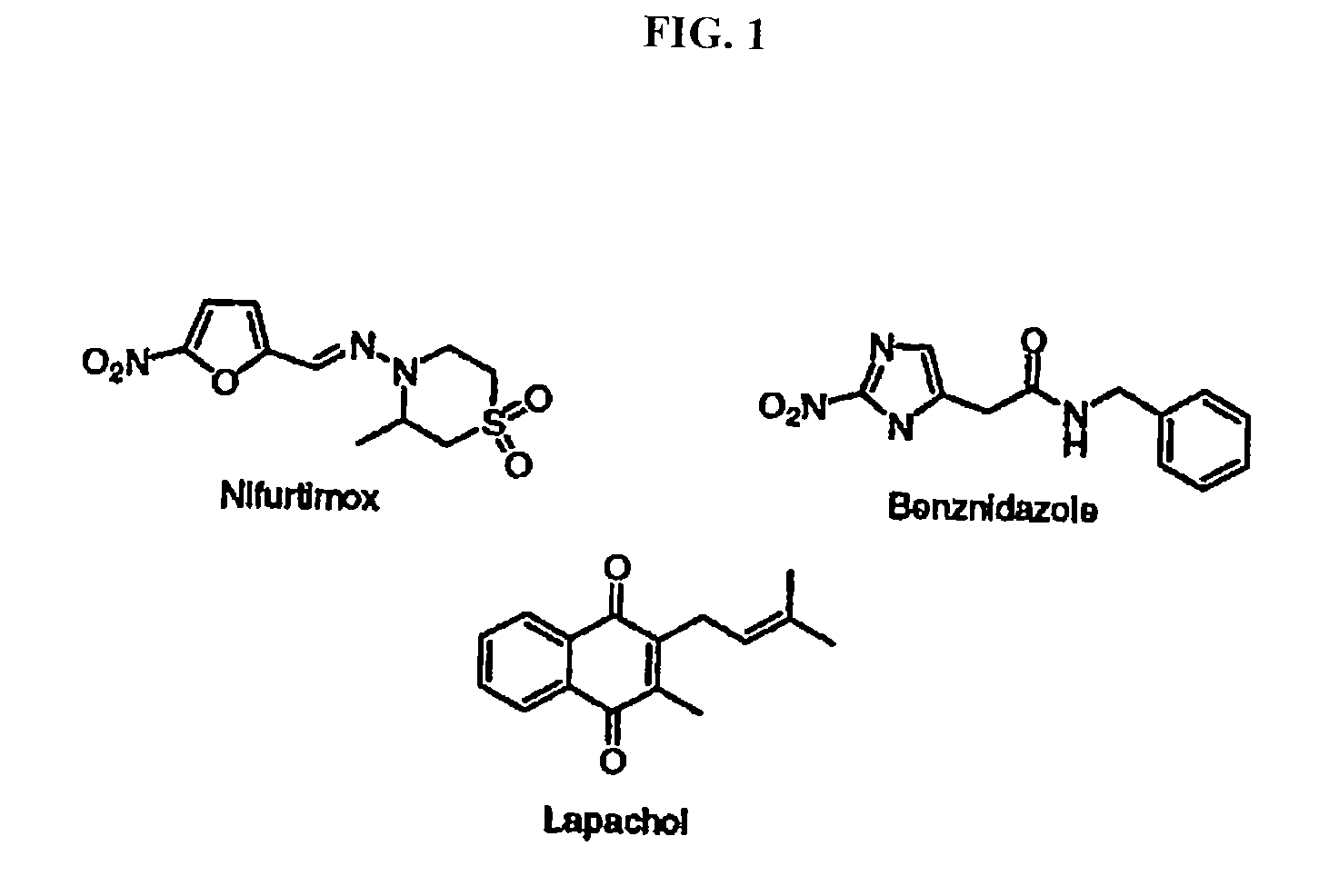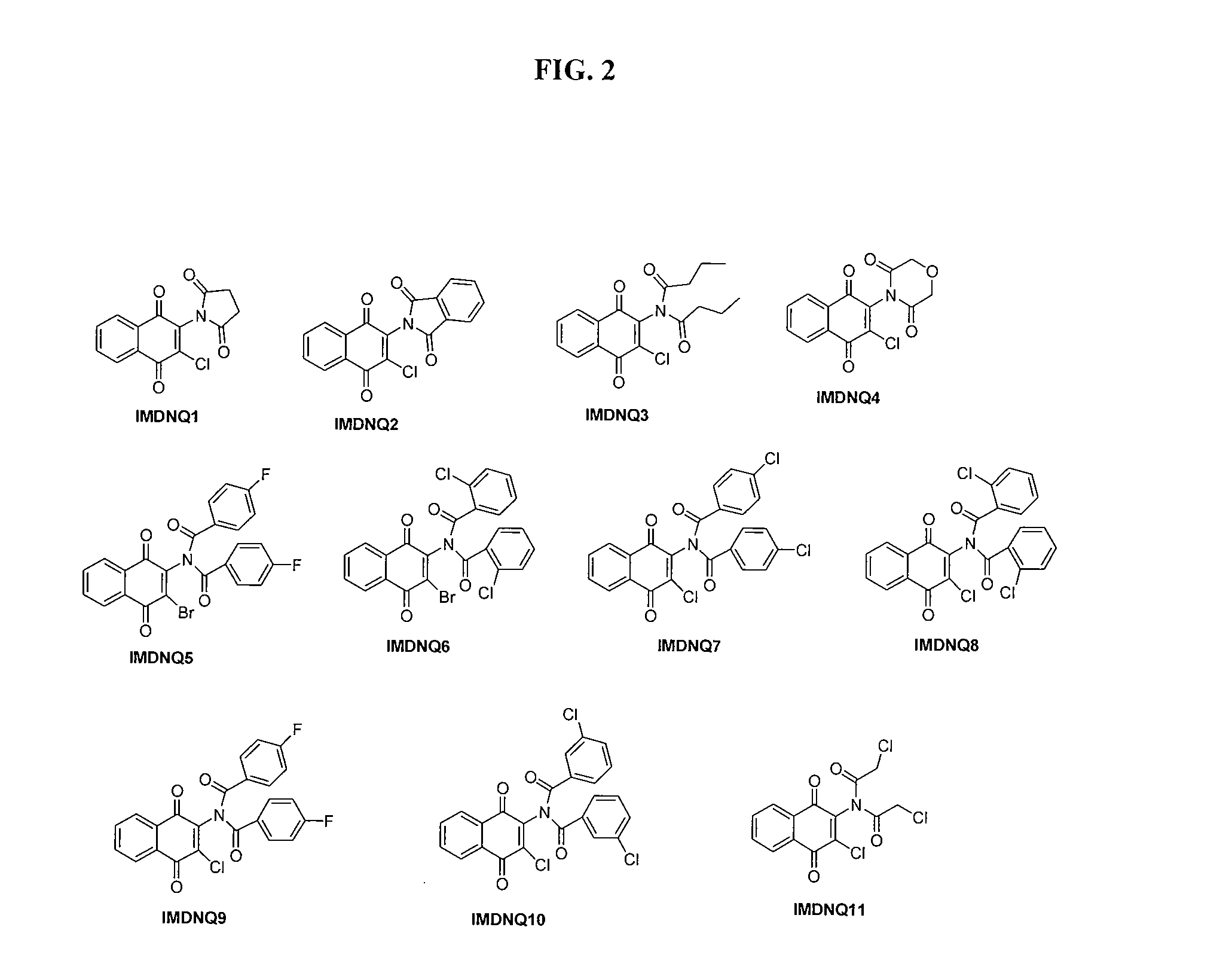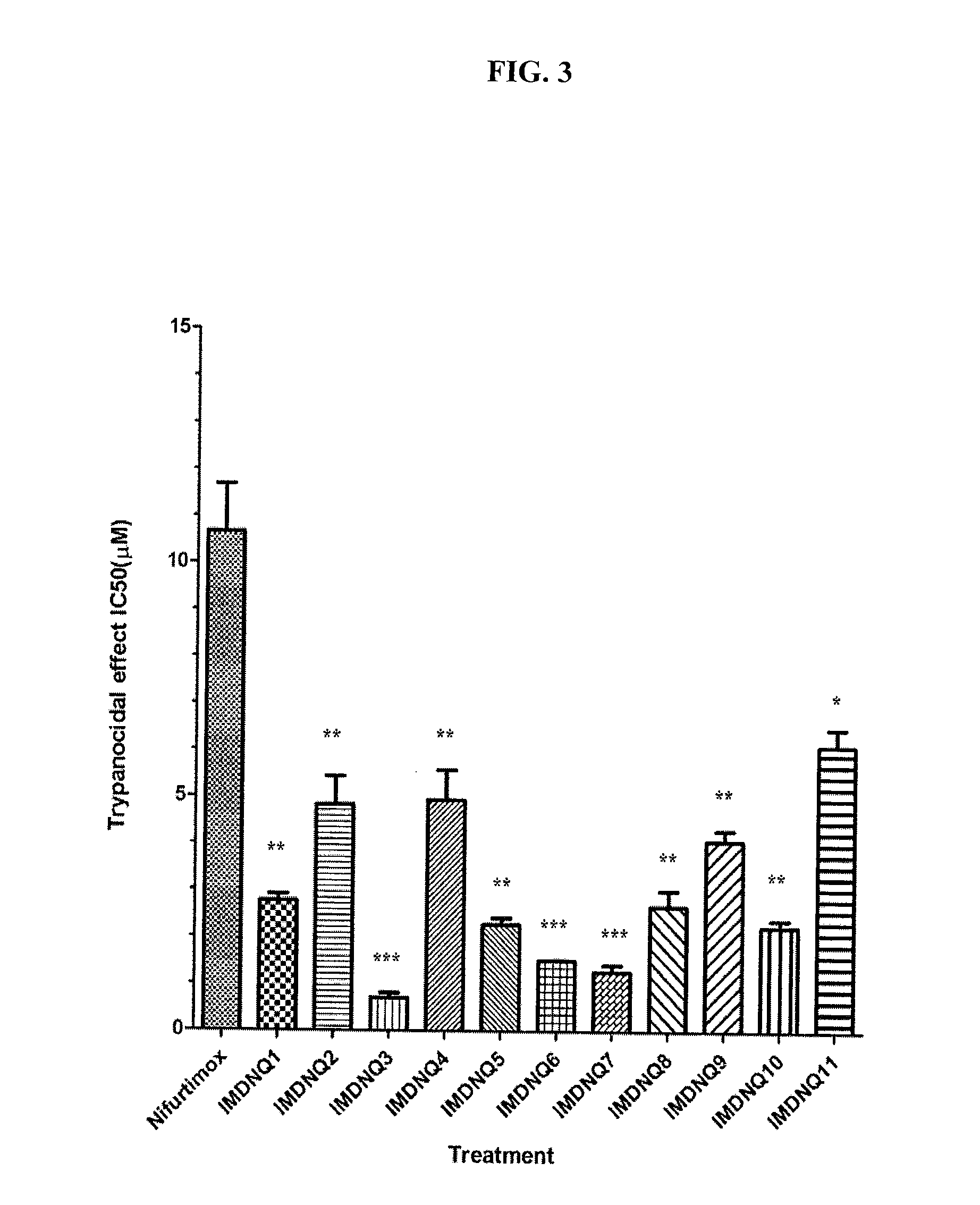Method for inhibiting trypanosoma cruzi
a trypanosomal and trypanosomal technology, applied in the field of trypanosomal inhibition, can solve the problems of poor safety, disability and even death, and it is difficult for people to eat normally or pass stool, and achieve the effect of inhibiting the kinetoplastid
- Summary
- Abstract
- Description
- Claims
- Application Information
AI Technical Summary
Benefits of technology
Problems solved by technology
Method used
Image
Examples
examples
[0123]In the Examples, reactions were carried out using laboratory grade materials and solvents. Melting points were determined in open capillary tubes on a Mel-Temp melting point apparatus and are uncorrected. The IR spectra were recorded on a Perkin Elmer PE 100 spectrometer with an Attenuated Total Reflectance (ATR) window. The 1H- and 13C-NMR spectra were obtained on a Bruker Avance 400 MHz spectrometer in deuterated chloroform (CDCl3). Chemical shifts are in δ units (ppm) with TMS (0.00 ppm) or CHCl3 (7.26 ppm), as internal standard for 1H-NMR, and CDCl3 (77.00 ppm) for 13C-NMR. Electrospray ionization mass spectrometry was recorded on a Thermo LTQ Orbitrap XL mass spectrometer and compounds dissolved in acetonitrile with 0.1% formic acid. The known intermediates were prepared according to procedures that are reported in the literature. 2-Amino-3-bromo-1,4-naphthoquinone was prepared by refluxing commercially available 2,3-dibromo-1,4-naphthoquinone with ammonia / ammonium hydrox...
examples 1-3
[0124]The succinimidyl (IMDNQ1), phthalimidyl (IMDNQ2) and dibutytryl (IMDNQ3) derivatives were synthesized from 2-amino-3-chloro-1,4-naphthoquinone and the appropriate acid chloride in accordance with Bakare, O., et al, Synthesis and MEK1 inhibitory activities of imido-substituted 2-chloro-1,4-naphthoquinones. Bioorg. Med. Chem., 11, 3165-3170 (2003); and Berhe, S., et al., Microwave-assisted synthesis of imido-substituted 2-chloro-1,4-naphthoquinone derivatives and their cytotoxic activities on three human prostate cancer cell lines, Lett. Drug Des. Discov., 5, 485-488 (2008).
example 4
[0125]The morpholine dione analog (IMDNQ4) was synthesized by microwave irradiation of a mixture of 2-amino-3-chloro-1,4-naphthoquinone and diglycolyl chloride as depicted in scheme 1 in Berhe, S., et al., Microwave-assisted synthesis of imido-substituted 2-chloro-1,4-naphthoquinone derivatives and their cytotoxic activities on three human prostate cancer cell lines, Lett. Drug Des. Discov., 5, 485-488 (2008).
PUM
| Property | Measurement | Unit |
|---|---|---|
| Selectivity | aaaaa | aaaaa |
| Toxicity | aaaaa | aaaaa |
Abstract
Description
Claims
Application Information
 Login to View More
Login to View More - R&D
- Intellectual Property
- Life Sciences
- Materials
- Tech Scout
- Unparalleled Data Quality
- Higher Quality Content
- 60% Fewer Hallucinations
Browse by: Latest US Patents, China's latest patents, Technical Efficacy Thesaurus, Application Domain, Technology Topic, Popular Technical Reports.
© 2025 PatSnap. All rights reserved.Legal|Privacy policy|Modern Slavery Act Transparency Statement|Sitemap|About US| Contact US: help@patsnap.com



